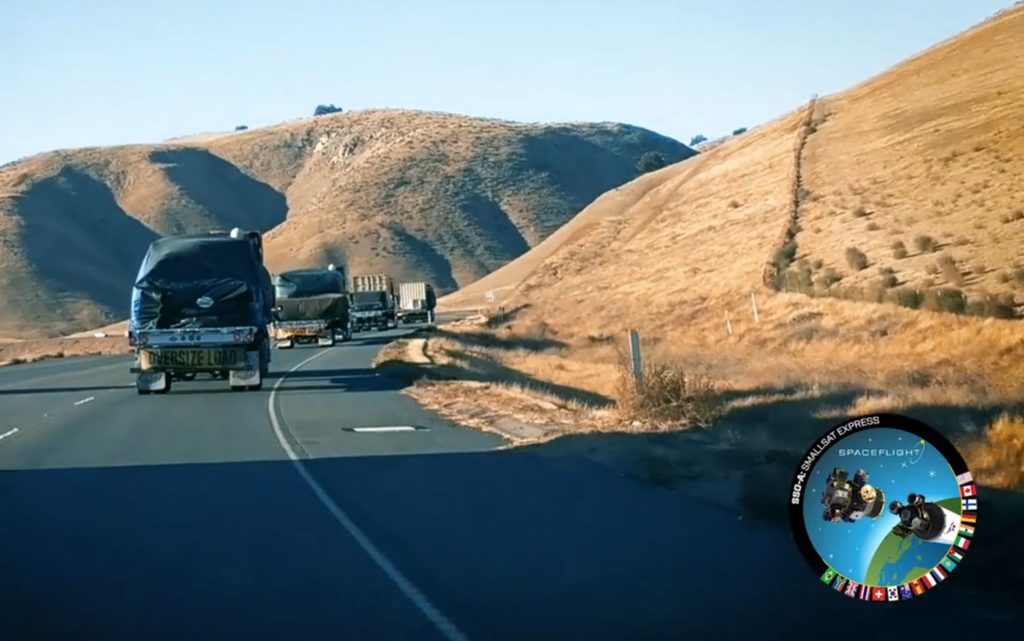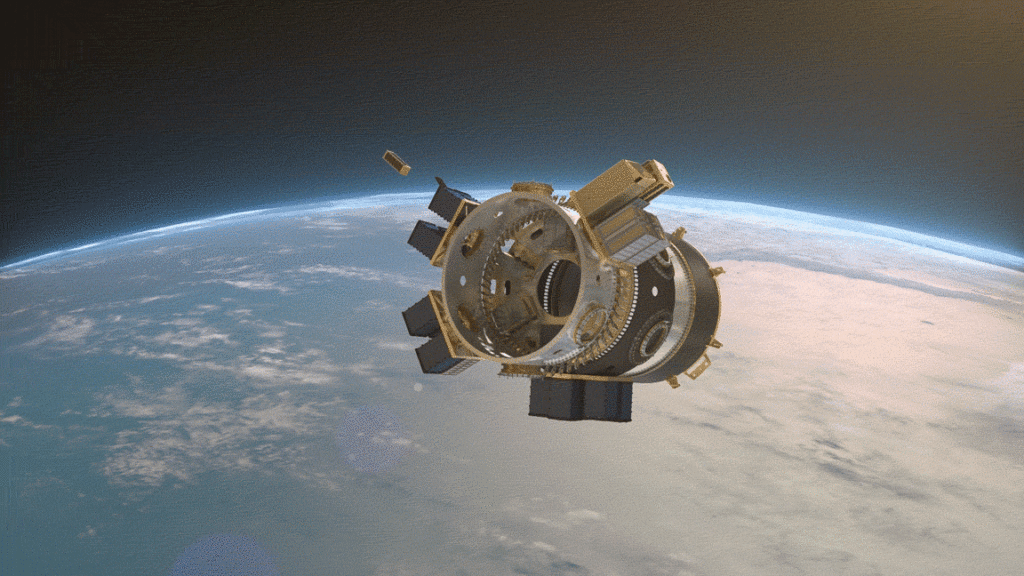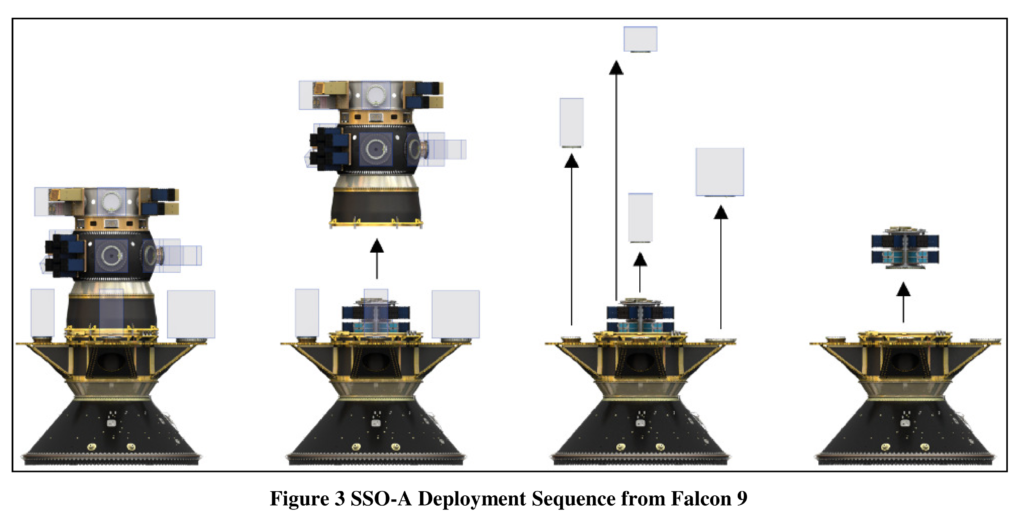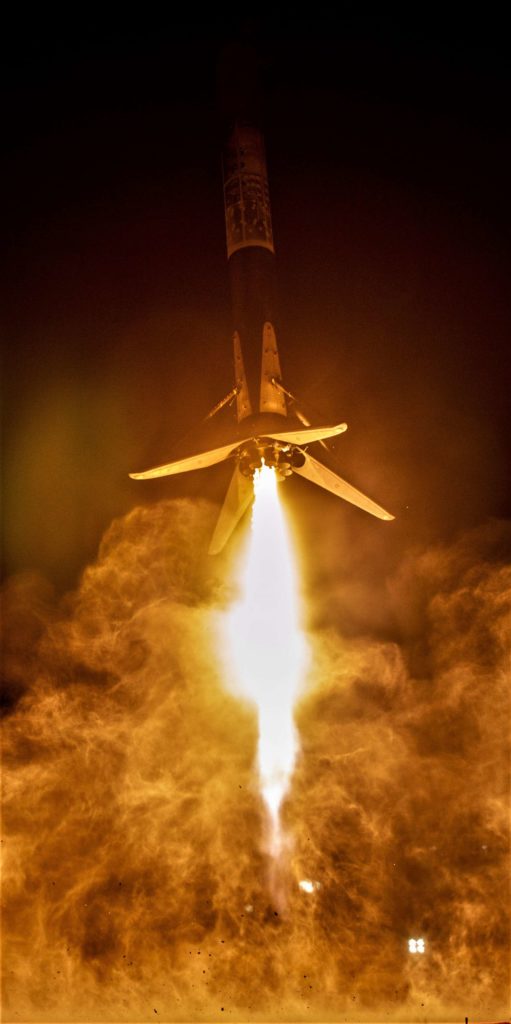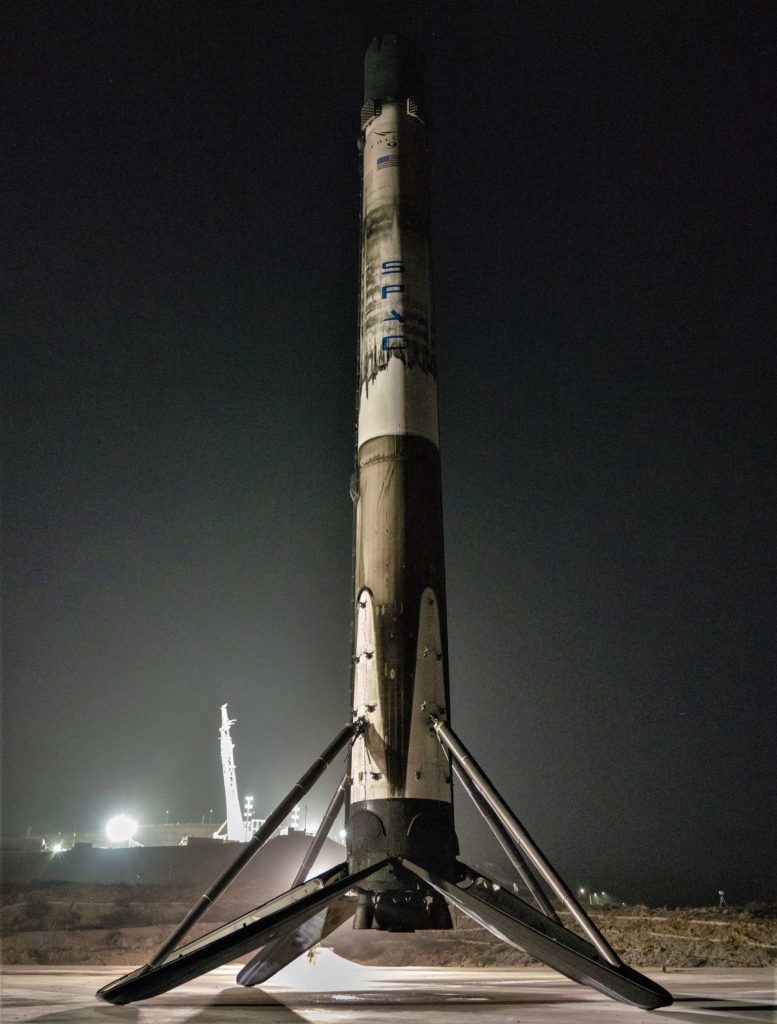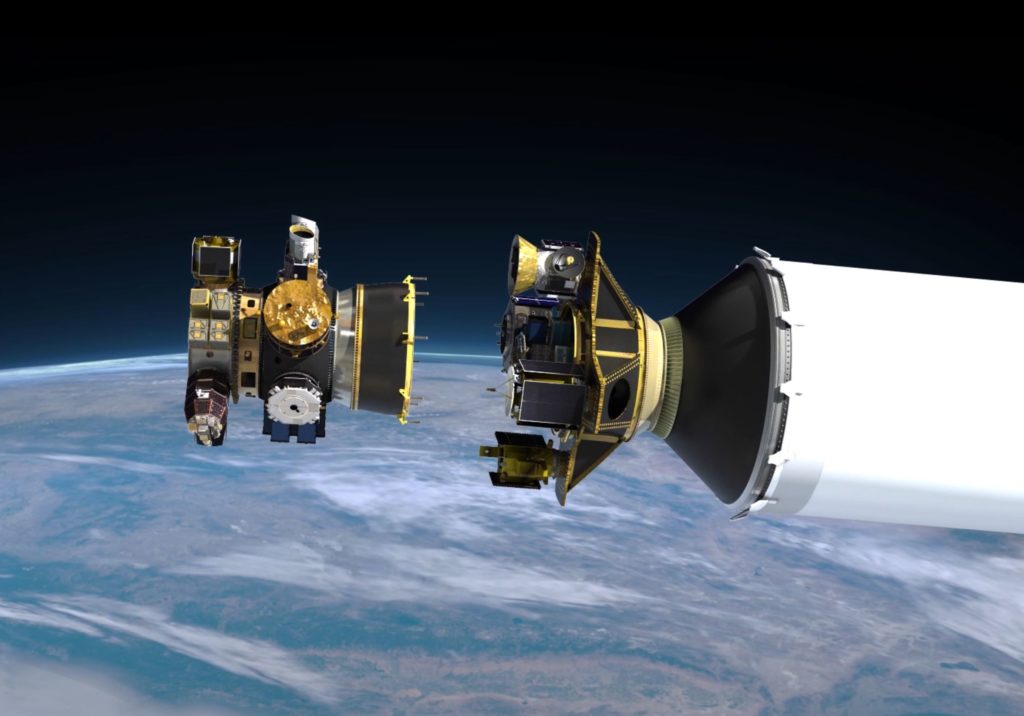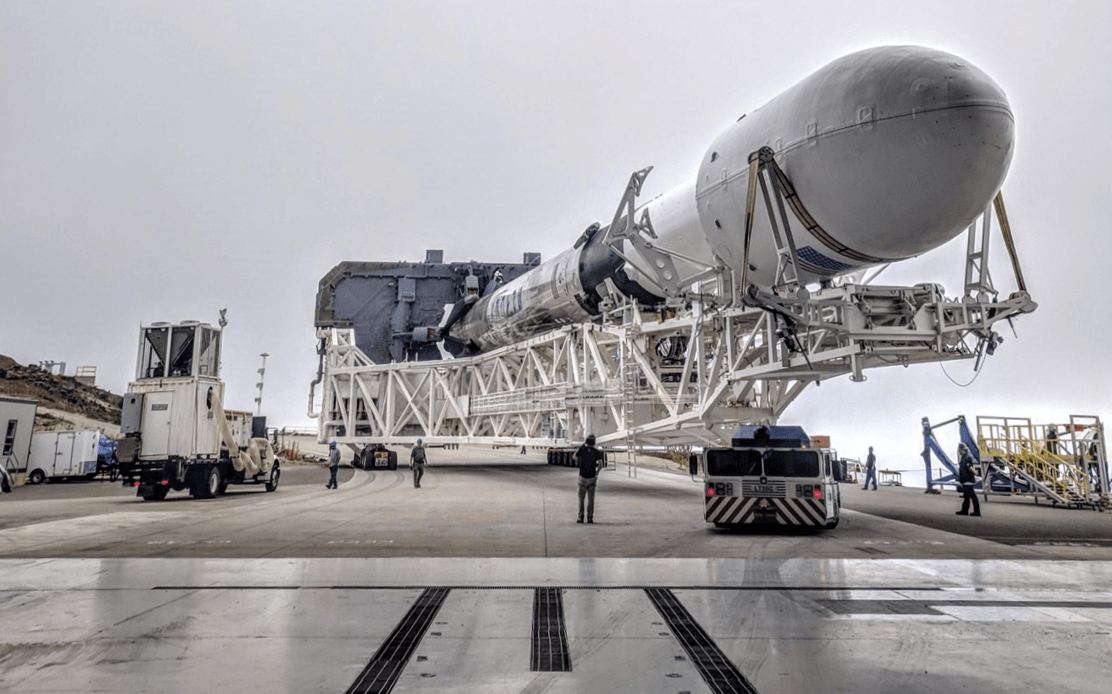
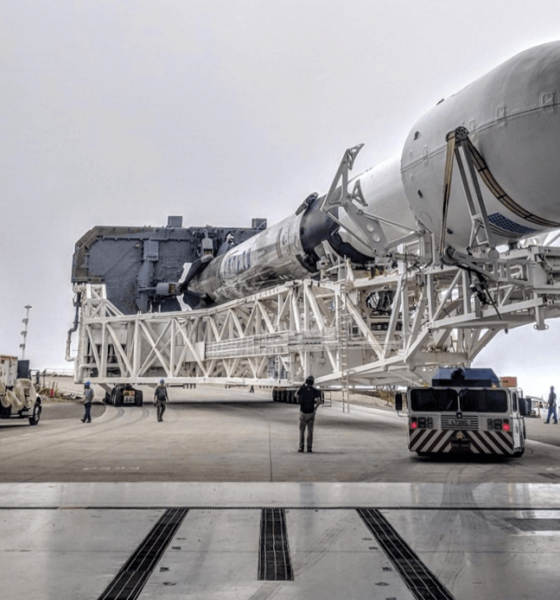
SpaceX
SpaceX targets Falcon 9 reusability milestone on first dedicated rideshare launch
SpaceX’s first dedicated rideshare – a collection of small satellites manifested for launch and organized by a third party – is into the final stretches of prelaunch preparations, readying for a ride to orbit on a flight-proven Falcon 9 no earlier than (NET) November 19th.
While unconfirmed, it appears that SpaceX is working to make SSO-A’s launch the first time the same Falcon 9 booster flies three missions, an accomplishment that may look minor up close but is actually a major step forward for orbital-class reusable rockets.
Who doesn't love a CONVOY? Watch our spacecraft start its journey to the launch pad here: https://t.co/97MxmjnKfl #ssoa #smallsatexpress
— Spaceflight (@SpaceflightInc) October 22, 2018
SSO-A organizer and launch customer Spaceflight Industries announced yesterday (Oct. 22) that the collection of several dozen satellites – called a “stack” when integrated together in and on Spaceflight’s custom dispenser – arrived at Vandenberg Air Force Base (VAFB) within the last few days, setting the stage for post-shipment health checkouts and encapsulation inside Falcon 9’s payload fairing.
“The assembled stack has now traveled by road 1,075 miles (1730 km) from Seattle. It will travel another 357 miles (575 km) to reach its targeted orbit. So we could say that the longest part of the journey is over…but the most exciting part is still to come!”
- Spaceflight’s convoy of support vehicles follow as the stack is shipped from Auburn, WA to Vandenberg, CA, a journey of ~1000 miles. (Spaceflight)
- Spaceflight’s SSO-A Upper Free Flyer visualized deploying cubesats shortly after launch on Falcon 9. (Spaceflight)
- SSO-A’s fairly intricate deployment sequence. (Spaceflight)
Arrival at the launch site is a huge milestone for any satellite or spacecraft and that is perhaps even more so the case for massive rideshare missions like SSO-A. The task of wrangling together dozens upon dozens of satellites of all different shapes and sizes – all coming from dozens of customers spread across the world – is understandably unenviable from a logistical standpoint. Despite the major hurdles and the apparent loss or slippage of a few dozen previously-planned satellites, it appears that Spaceflight Industries has made it through logistical hell and can now begin to focus on prelaunch operations after arriving at or near SpaceX’s California launch site.
If there were any stragglers with satellites that were not quite able to make it to Spaceflight’s Auburn, WA integration facilities ahead of shipment to California, there may still be a very limited time-frame for those customers to redirect their spacecraft to California and integrate with the full stack before the whole thing is closed up inside Falcon 9’s payload fairing.
- Falcon 9 B1048.2 landed at LZ-4 after its second successful launch. (SpaceX)
- Falcon 9 B1048 landed at LZ-4 after its second launch and is now being refurbished on the opposite coast. (SpaceX)
- A render of Spaceflight’s SSO-A dispensers attached to Falcon 9’s second stage.
Third time’s the charm
For Falcon 9, SSO-A is equally exciting. Likely to fly on either booster B1048 or B1046, both now with two successful launches on their records, this mission could mark the first time a Falcon 9 booster completes three orbital-class missions. If the rocket managed a successful recovery, either at SpaceX’s recently-inaugurated Landing Zone-4 (LZ-4) or well-worn drone ship Just Read The Instructions, it would pave the way for its fourth reflight and beyond. SpaceX designed Falcon 9 Block 5 to be capable of a minimum of 10 launches per booster with little to no refurbishment, potentially enabling 100+ flights each with regular maintenance.
If schedules hold, SSO-A will launch as few as five days after SpaceX’s NET November 14th launch of communications satellite Es’Hail-2 on the opposite coast.
For prompt updates, on-the-ground perspectives, and unique glimpses of SpaceX’s rocket recovery fleet check out our brand new LaunchPad and LandingZone newsletters!

Elon Musk
SpaceX to launch Starlink V2 satellites on Starship starting 2027
The update was shared by SpaceX President Gwynne Shotwell and Starlink Vice President Mike Nicolls.
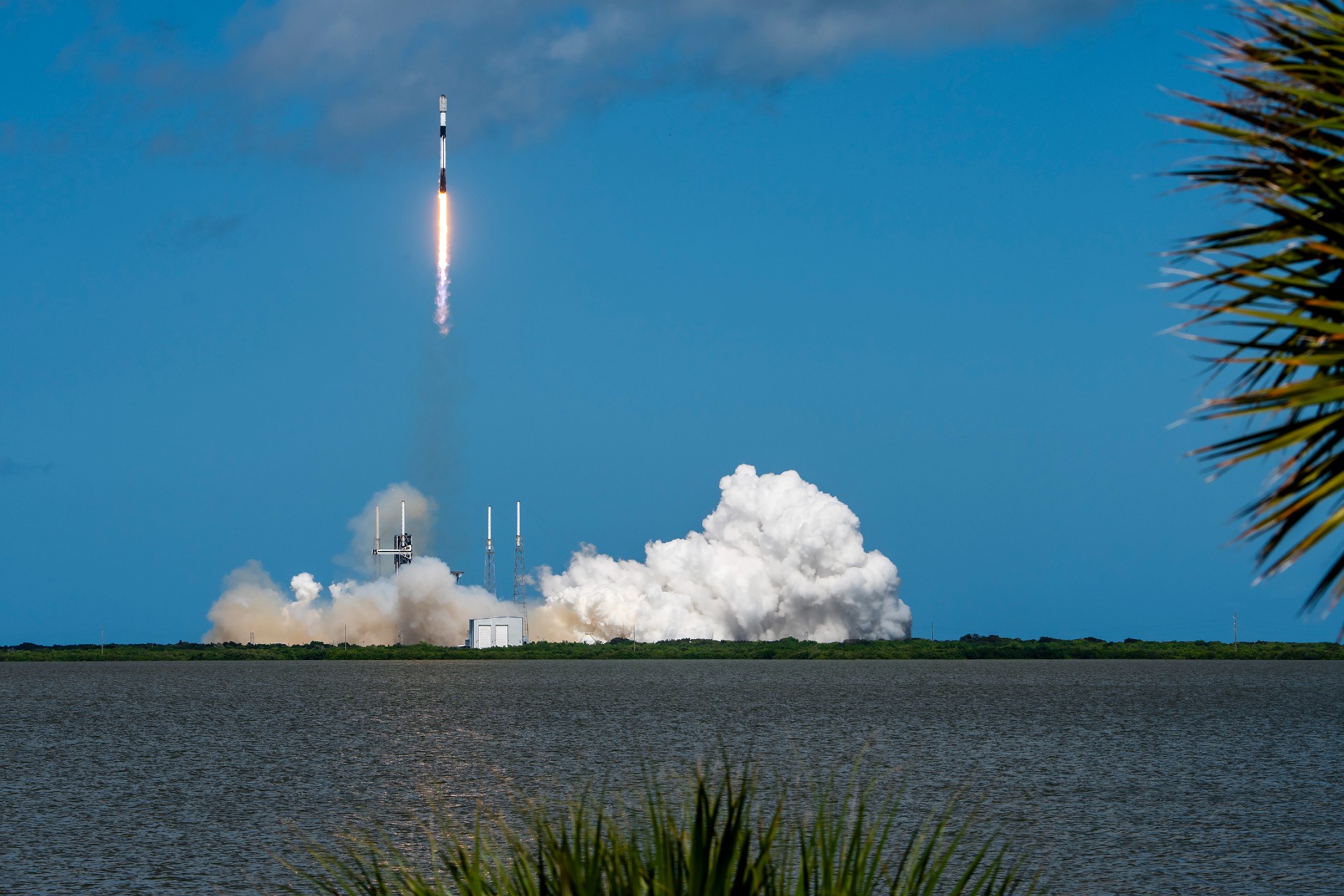
SpaceX is looking to start launching its next-generation Starlink V2 satellites in mid-2027 using Starship.
The update was shared by SpaceX President Gwynne Shotwell and Starlink Vice President Mike Nicolls during remarks at Mobile World Congress (MWC) in Barcelona, Spain.
“With Starship, we’ll be able to deploy the constellation very quickly,” Nicolls stated. “Our goal is to deploy a constellation capable of providing global and contiguous coverage within six months, and that’s roughly 1,200 satellites.”
Nicolls added that once Starship is operational, it will be capable of launching approximately 50 of the larger, more powerful Starlink satellites at a time, as noted in a Bloomberg News report.
The initial deployment of roughly 1,200 next-generation satellites is intended to establish global and contiguous coverage. After that phase, SpaceX plans to continue expanding the system to reach “truly global coverage, including the polar regions,” Nicolls said.
Currently, all Starlink satellites are launched on SpaceX’s Falcon 9 rocket. The next-generation fleet will rely on Starship, which remains in development following a series of test flights in 2025. SpaceX is targeting its next Starship test flight, featuring an upgraded version of the rocket, as soon as this month.
Starlink is currently the largest satellite network in orbit, with nearly 10,000 satellites deployed. Bloomberg Intelligence estimates the business could generate approximately $9 billion in revenue for SpaceX in 2026.
Nicolls also confirmed that SpaceX is rebranding its direct-to-cell service as Starlink Mobile.
The service currently operates with 650 satellites capable of connecting directly to smartphones and has approximately 10 million monthly active users. SpaceX expects that figure to exceed 25 million monthly active users by the end of 2026.
Elon Musk
Starlink V2 to bring satellite-to-phone service to Deutsche Telekom in Europe
Starlink stated that the system is designed to deliver 5G speeds directly to compatible smartphones in remote areas.
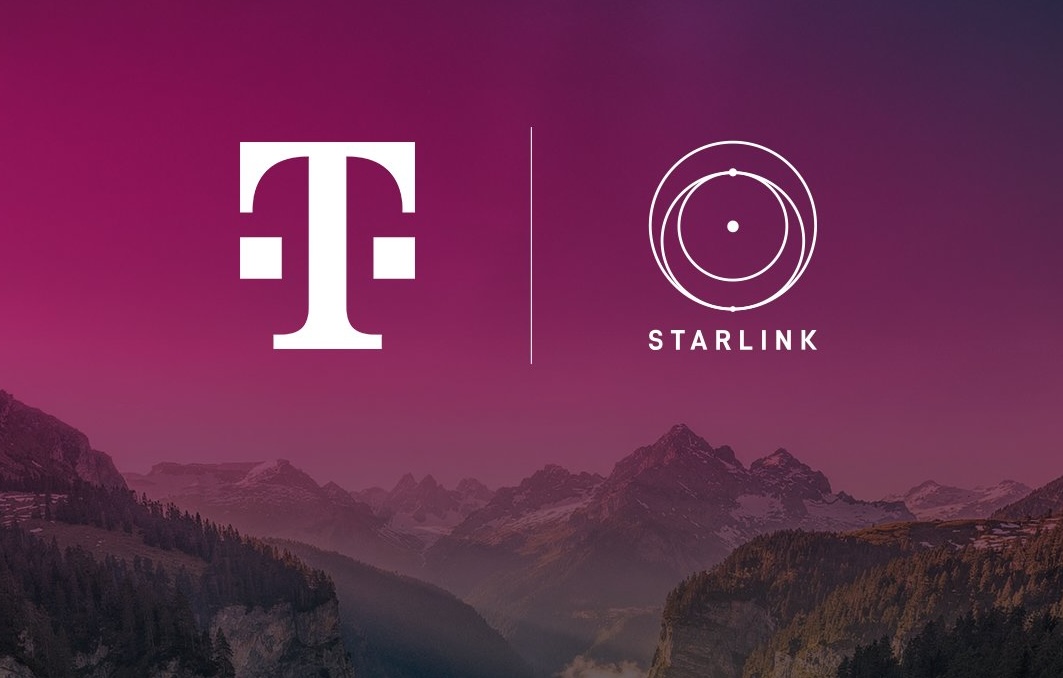
Starlink is partnering with Deutsche Telekom to roll out satellite-to-mobile connectivity across Europe, extending coverage to more than 140 million subscribers across 10 countries.
The service, planned for launch in 2028 in several Telekom markets, including Germany, will use Starlink’s next-generation V2 satellites and Mobile Satellite Service (MSS) spectrum to enable direct-to-device connectivity.
In a post on X, the official Starlink account stated that the agreement will be the first in Europe to deploy its V2 next-generation satellite-to-mobile technology using new MSS spectrum. The company added that the system is designed to deliver 5G speeds directly to compatible smartphones in remote areas.
Abdu Mudesir, Board Member for Product and Technology at Deutsche Telekom, shared his excitement for the partnership in a press release. “We provide our customers with the best mobile network. And we continue to invest heavily in expanding our infrastructure. At the same time, there are regions where expansion is especially complex due to topographical conditions or official constraints,” he said.
“We want to ensure reliable connectivity for our customers in those areas as well. That is why we are strategically complementing our network with satellite-to-mobile connectivity. For us, it is clear: connectivity creates security and trust. And we deliver. Everywhere.”
Under the partnership, compatible smartphones will automatically switch to Starlink’s satellite network when terrestrial coverage is unavailable, enabling access to data, voice, video, and messaging services.
Telekom reports 5G geographic coverage approaching 90% in Germany, with LTE exceeding 92% and voice coverage reaching up to 99%. Starlink’s satellite layer is intended to extend connectivity beyond those terrestrial limits, particularly in topographically challenging or infrastructure-constrained areas.
Stephanie Bednarek, VP of Starlink Sales, also shared her thoughts on the partnership. “We’re so pleased to bring reliable satellite-to-mobile connectivity to millions of people across 10 countries in partnership with Deutsche Telekom. This agreement will be the first-of-its-kind in Europe to launch Starlink’s V2 next-generation technology that will expand on data, voice and messaging by providing broadband directly to mobile phones,” she said.
Starlink’s V2 constellation is designed to expand bandwidth and capacity compared to its predecessor. If implemented as outlined, the 2028 launch would mark one of the first large-scale European deployments of integrated satellite-to-phone connectivity by a major telecom operator.
Elon Musk
SpaceX pursues 5G-level connectivity with Starlink Mobile V2 expansion
SpaceX noted that the upcoming Starlink V2 satellites will deliver up to 100 times the data density of the current first-generation system.

SpaceX has previewed a major upgrade to Starlink Mobile, outlining next-generation satellites that aim to deliver significantly higher capacity and full 5G-level connectivity directly to mobile phones.
The update comes as Starlink rebrands its Direct-to-Cell service to Starlink Mobile, positioning the platform as a scalable satellite-to-mobile solution that’s integrated with global telecom partners.
SpaceX noted that the upcoming Starlink V2 satellites will deliver up to 100 times the data density of the current first-generation system. The company also noted that the new V2 satellites are designed to provide significantly higher throughput capability compared to its current iteration.
“The next generation of Starlink Mobile satellites – V2 – will deliver full cellular coverage to places never thought possible via the highest performing satellite-to-mobile network ever built.
“Driven by custom SpaceX-designed silicon and phased array antennas, the satellites will support thousands of spatial beams and higher bandwidth capability, enabling around 20x the throughput capability as compared to a first-generation satellite,” SpaceX wrote in its official Starlink Mobile page.
Thanks to the higher bandwidth of Starlink Mobile, users should be able to stream, browse the internet, use high-speed apps, and enjoy voice services comparable to terrestrial cellular networks.
In most environments, Starlink says the upgraded system will enable full 5G cellular connectivity with a user experience similar to existing ground-based networks.
The satellites function as “cell towers in space,” using advanced phased-array antennas and laser interlinks to integrate with terrestrial infrastructure in a roaming-like architecture.
“Starlink Mobile works with existing LTE phones wherever you can see the sky. The satellites have an antenna that acts like a cellphone tower in space, the most advanced phased array antennas in the world that connect seamlessly over lasers to any point in the globe, allowing network integration similar to a standard roaming partner,” SpaceX wrote.
Starlink Mobile currently operates with approximately 650 satellites in low-Earth orbit and is active across more than 32 countries, representing over 1.7 billion people through partnerships with mobile network operators. Starlink Mobile’s current partnerships span North America, Europe, Asia, Africa, and Oceania, allowing reciprocal access across participating nations.
